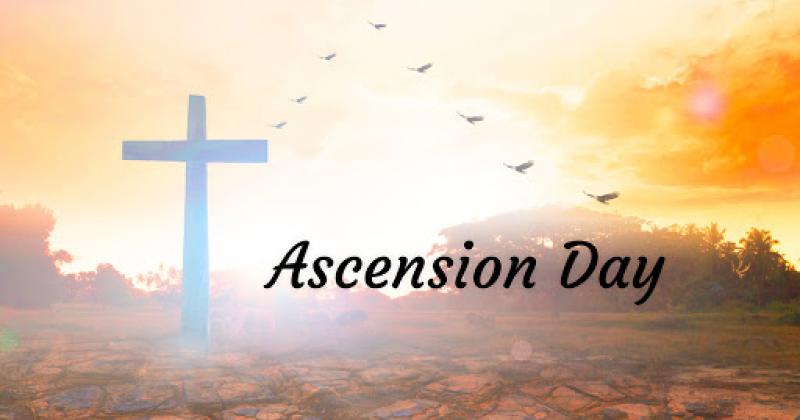In the English-speaking world, for the most part, the weekday festivals of Christianity have all but disappeared.
So Ascension Thursday – which comes forty days after Easter Sunday – usually passes without a murmur outside the ranks of those who are very regular churchgoers.
It is passed over even in those countries where it is a holy day of obligation to attend Mass – such a strange concept to threaten people with being guilty of a sin if they do not go and joyfully thank God for his goodness!
So some bishops in different parts of the world have transferred Ascension Thursday to the following Sunday.
WHEN CHURCHES ARE CLOSED
Religion is easy to remember on a Sunday, but there is just too much going on during a normal weekday to fit in one more thing. We all know the feeling: the week is full, and now something else comes up – and one recalls that the camel's back was broken by adding another straw.
This year is different. Lockdown may be easing in many places, but we still have more time. We know that we must somehow organize our time differently, since cannot rely on the structures that have always worked before.
And in many places churches are still closed. This is a good time to think again about how we can celebrate Ascension Day in lockdown. This year it is this Thursday, May 21.
LISTENING TO LUKE
The entire background to this feast comes from just one early Christian writer: Luke. He ends his gospel – and the stories of the encounters with the risen Lord after Easter – with these words:
Then [Jesus] led them out as far as Bethany, and, lifting up his hands, he blessed them. While he was blessing them, he withdrew from them and was carried up into heaven. And they worshiped him, and returned to Jerusalem with great joy; and they were continually in the temple blessing God (Lk 24:50-3).
Then Luke begins his second work, the Acts of the Apostles, with this:
In the first book, Theophilus, I wrote about all that Jesus did and taught from the beginning until the day when he was taken up to heaven, after giving instructions through the Holy Spirit to the apostles whom he had chosen.
After his suffering he presented himself alive to them by many convincing proofs, appearing to them during forty days and speaking about the kingdom of God.
While staying with them, he ordered them not to leave Jerusalem, but to wait there for the promise of the Father.
"This," he said, "is what you have heard from me; for John baptized with water, but you will be baptized with the Holy Spirit not many days from now."
So when they had come together, they asked him, "Lord, is this the time when you will restore the kingdom to Israel?"
He replied, "It is not for you to know the times or periods that the Father has set by his own authority. But you will receive power when the Holy Spirit has come upon you; and you will be my witnesses in Jerusalem, in all Judea and Samaria, and to the ends of the earth."
When he had said this, as they were watching, he was lifted up, and a cloud took him out of their sight.
While he was going and they were gazing up toward heaven, suddenly two men in white robes stood by them.
They said, "Men of Galilee, why do you stand looking up toward heaven? This Jesus, who has been taken up from you into heaven, will come in the same way as you saw him go into heaven." (Acts 1:1-11).
Within Luke's overarching vision of history, the ascension marks a key turning point from when the risen Christ was present visibly to one group of disciples gathered in and around Jerusalem to his being present among his disciples everywhere.
We can imagine Luke travelling from community to community, giving performances of his take on "the gospel" while seeking to show that all these churches were part of a network that made up the new people of God.
In each gathering he wanted to affirm that the risen Jesus had both left them – in the sense that they could not directly see him: 'he was taken from their sight' – but also that he was no longer confined to one place, one group or one moment. After the Ascension, he was there in the community now gathered and listening to Luke.
This year most of us cannot gather in big assemblies. We must celebrate in small groups if you are in lockdown with family or friends, or you are alone.
But the risen Lord's presence is not confined: he is with you in lockdown – and there is no more appropriate moment to experience this anew than on Ascension Day! There is no more appropriate day in the whole liturgical year to remember the presence of the Christ among us.
